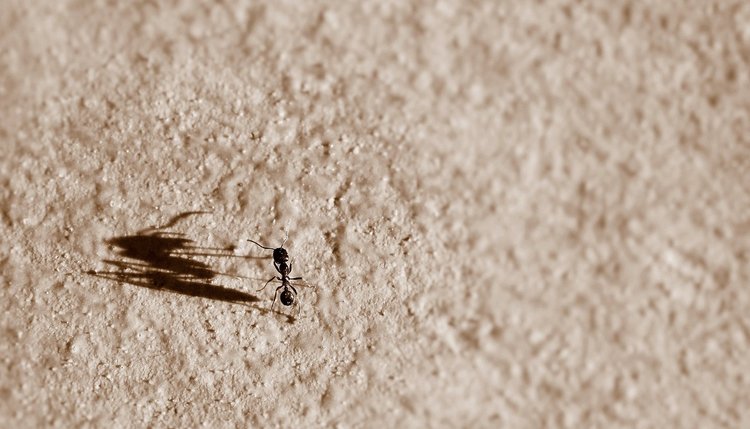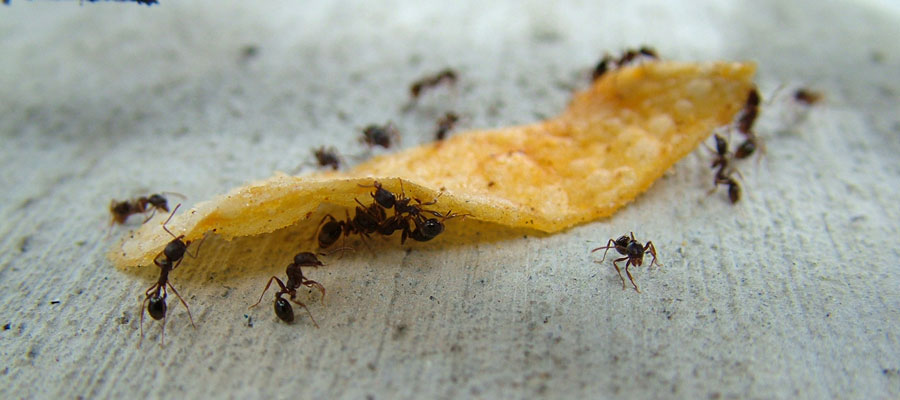Their name alone is enough to know that you don’t want them around, but what should you do when you find one (or probably more) of these critters living in your home? How can you prevent an infestation, and why on earth do they stink? We have all the answers and a team of experts ready to help you rid your home of these putrid pests.
What Are Odorous House Ants?
Just as its name suggests, an odorous house ant is a common subspecies of ant known for its stench. Outside of their characteristic smell, odorous house ants can be distinguished from other common ant variants by their particularly small bodies, which are usually between 1/8” and 3/16” in length, and their fast-moving pace. They also live in very large colonies and tend to move their nests often. They prefer sweet, naturally occurring foods like honeydew and sap, but their diets are fairly diverse, and they will not pass up food that they can find inside your home.
Preventing an Odorous House Ant Infestation
As it goes for many pests, keeping them off of your property starts with tidiness. Here are 3 ways to prevent odorous house ants from getting into your home and reduce the chance of outbreak:
- Be sure to trim all bushes, trees, and shrubbery so that they aren’t touching your house. Overgrown plants provide the perfect path of entry to any cracks or crevices your home has.
- Keep all food, including your pet’s food, covered tightly. Don’t leave crumbs on the floor, and be sure to wipe up spills quickly.
- Refrain from storing food (sealed or not) in your garage. Any food will attract ants and pests of all kinds. If ants have infiltrated your garage, the interior of your home will be their next stop.
Are Odorous House Ants Dangerous?
Odorous house ants do not sting or bite. While having an odorous house ant infestation is certainly a nuisance, it isn’t necessarily harmful to you or your family. Odorous house ants are attracted to food sources and typically confine their damage to your pantry.
Many have noticed that crushing an odorous house ant yields a scent reminiscent of blue cheese or rotten coconut, but this shouldn’t worry you about the possibility of any harmful emission. Scientists have concluded that some antimicrobial substance must be part of their make-up, and that substance is what causes the foul omission when the ant is squashed. The science behind their smell is more thoroughly explained in this article.
Have a pest problem? We can help!
How To Get Rid of Odorous House Ants
Because they cohabitate in such large numbers, once you have an infestation, it is nearly impossible to rid them on your own. However, there are some tactics you can use to stifle the outbreak you’ve found in your home:
- Bait has been found to be a productive way to eliminate ants within your home. The bait should be placed where you have seen the ants. Worker ants may take the bait back to the nest and spread the insecticide, killing the queen and the rest of the colony. You might need to try several different kinds of bait before the workers take it.
- Indoor insecticide sprays can be a temporary fix, but they merely address the symptom, not the actual problem. Spraying worker ants in your home will just leave the existing scent trail for other worker ants to follow right back into your home.
- Using an outdoor insecticide around the perimeter of your home can help you prevent an ant infestation. To ensure the best results, the insecticide may need to be reapplied occasionally.
If your ant problem is becoming overwhelming, it may be time to call a professional. Our ant extermination specialists here at Springer Professional Home Services will be able to find the nest, properly shield your property, and eliminate the ant problem in your home. Reach out to us today for a free quote!


